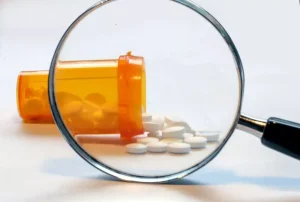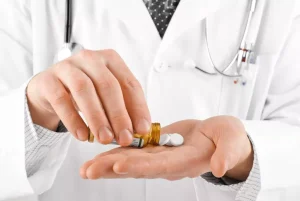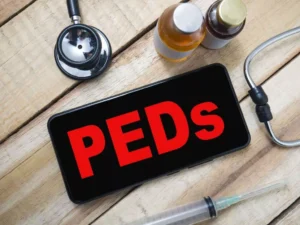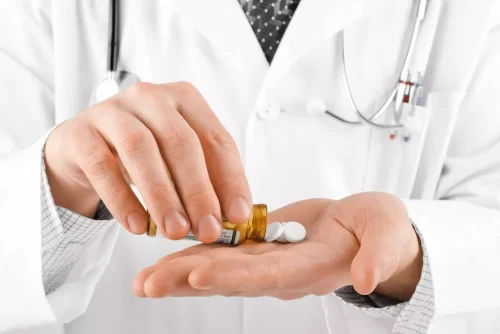
Additionally, low-to-moderate alcohol consumption is always the best practice for minimizing sleep disruptions or health concerns. The CDC defines moderate drinking as two or fewer drinks for males, and one or fewer for females, in a given day. Research shows that regular alcohol intake can reduce sleep quality over time, potentially causing issues such as insomnia. In addition to loss of gray matter volume and reduced connectivity, downregulation of GABA systems could also partially explain the decrease in both delta powerand the amplitude of evoked delta responses in abstinent alcoholics.
How Does Alcohol React in the Body?
Eating before or while https://ecosoberhouse.com/ drinking can help slow the absorption of alcohol and reduce its effects on your sleep. This can cause the airway to become partially obstructed, leading to snoring or worsening symptoms of sleep apnea – hence the clear link between alcohol and sleep apnea. While most people think REM sleep is the deepest stage of sleep, it’s actually the lightest sleep stage next to N1. The N3 sleep stage, where we experience slow-wave sleep, is the deepest stage of sleep. Retrospectively, subjects with AD reported the presence of insomnia prior to the onset of AD (Currie et al., 2003a).
- This can worsen sleep apnea symptoms by causing your airway to be more likely to collapse while sleeping.
- Many people have quit alcohol using self-help books such as Allen Carr’s Easyway to Quit Emotional Drinking, which helps people understand how they can cope with the emotional aspects of life without feeling the need to drink alcohol.
- In summary, the preponderance of studies report subjective and objective increase in sleep onset latency and sleep fragmentation with consequently decreased TST in actively drinking subjects with AD.
- Ultimately it can make some people more vulnerable to sleep apnea or exacerbate the symptoms for those who already have it.
- Keep in mind that for people with AUD, sleeping issues may persist through the withdrawal phase.
Alcohol Disrupts Sleep Stages

This peak may be blunted or delayed in those with AD (Kuhlwein et al., 2003). Consequently, AD subjects may be more likely to manifest a delayed phase type disorder, which may present as difficulty falling asleep. In summary, insomnia is prevalent across all stages of AD and may have does alcohol cause insomnia psychosocial, addiction and psychiatric ramifications.

Could My Alcohol Consumption Be Affecting My Sleep Quality?
Alcohol has sedative properties that may help with sleep onset, allowing you to fall asleep faster. However, people who drink alcohol before bed often experience disruptions later in their sleep cycle. It’s Alcoholics Anonymous common for someone who’s alcohol-dependent to experience long-term sleep problems since insomnia and other sleep disorders are typical symptoms of alcoholism. Though alcohol may help you fall asleep faster, it can disrupt the important REM stage of your sleep cycle, leading to lack of sleep or sleep disorders like insomnia. While drinking alcohol before bedtime may help you feel relaxed and sleepy, enjoying a nightcap puts you at risk of experiencing repeated wakings and low-quality sleep later in the night.
- Alcohol use and dependence appear to interfere with circadian rhythms—biological patterns that operate on a 24-hour clock.
- However, the relationship between the two disorders is complicated and closely linked.
- Abnormalities in the timing of REM sleep wouldappear to last longer into the abstinence period.
- Even though alcohol may help you fall asleep, it interferes with the quality of your sleep.
Treatments for Insomnia in AD

For those seeking addiction treatment for themselves or a loved one, all phone calls are confidential and are available for 24/7 help. All calls will be answered by Pinnacle Health Group or Still Behavioral Health Group, both of whom are paid advertisers. Any treatment center receiving calls from the site is a paid advertiser.
- Data are drawn from (Feige et al. 2006; Prinz et al. 1980; Rundell et al.1972).
- Alcohol interferes with the brain’s ability to receive chemical messages involved in breathing, which decreases the body’s respiratory drive and increases the likelihood of pauses in breathing.
- In other words, it appears that men with more alcohol consumption suffer from overall poor sleep quality, experience difficulty in maintaining sleep rather than falling asleep, suffer from shorter overall sleep duration, and therefore have worse subjective sleep quality.
- Thus, it is important to treat your “sleeplessness,” while also addressing your alcohol problem.
- By contrast, primary insomniacs have greater betapower during NREM sleep than normal sleepers, thought to reflect higher levels of corticalarousal (Riemann et al. 2010).
